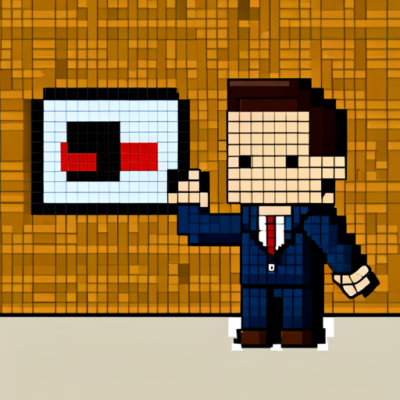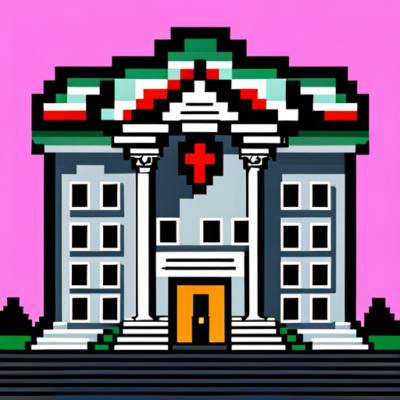
The tragic killing of Maria de Fátima Muniz, a respected spiritual leader of the Pataxó Hã-Hã-Hãe Indigenous group in Brazil, has sparked calls for government action to protect Indigenous lands and prevent further violence.
At a glance
- Brazilian President Lula da Silva accuses Israel of genocide in Gaza, sparking global debate.
- Maria de Fátima Muniz, spiritual leader of the Pataxó Hã-Hã-Hãe Indigenous group, was fatally shot while reclaiming ancestral land.
- 200 non-Indigenous “ruralists” attack Maria’s village, injuring individuals and setting fire to vehicles.
- President Lula promised federal assistance after Maria’s death but was criticized for not taking sufficient action.
- Allegations link armed militia group to Maria’s murder, calls for government to protect Indigenous lands.
The details
Brazilian President Luiz Inacio Lula da Silva has caused a stir by accusing Israel of committing genocide in Gaza, drawing parallels to Adolf Hitler’s atrocities against Jewish people.
This inflammatory statement has ignited a global debate and garnered widespread condemnation.
Tragic Death of Maria de Fátima Muniz
Tragically, Maria de Fátima Muniz, a respected spiritual leader of the Pataxó Hã-Hã-Hãe Indigenous group in northeastern Brazil, was fatally shot on January 21 while trying to reclaim part of their ancestral land.
Maria’s village had faced backlash from local landowners, leading to a violent clash.
The Brazilian government reported that around 200 non-Indigenous “ruralists” were involved in the attack, firing shots, injuring at least five individuals, and setting fire to Pataxó Hã-Hã-Hãe vehicles.
Maria’s untimely death has shed light on the ongoing violence experienced by the Pataxó Hã-Hã-Hãe community.
Government Response and Criticisms
President Lula da Silva has promised federal assistance to address the situation following Maria’s tragic demise.
Despite his efforts to enhance protections for Brazil’s Indigenous populations, Lula has been criticized for not taking sufficient action amid escalating tensions.
The controversial “marco temporal” policy, which aims to restrict Indigenous land claims based on their presence before October 5, 1988, has faced strong opposition from advocacy groups as a detrimental setback to Indigenous rights.
The policy has garnered support from Brazil’s agricultural sector, which seeks access to natural resources on Indigenous territories.
Investigations and Calls for Action
Following Maria’s killing, allegations have emerged linking the armed militia group Invasion Zero to the incident, although they have denied any involvement.
Two suspects have been apprehended in connection with Maria’s murder, with investigations ongoing.
The Pataxó Hã-Hã-Hãe have been actively reclaiming land through occupations as a means to honor their ancestors and protect the environment.
Indigenous stewardship has been praised for its role in curbing deforestation rates, as recognized by the United Nations.
Maria’s death has prompted widespread calls for the government to take decisive measures to safeguard Indigenous lands and prevent further violence.
She is remembered as a wise and influential figure within her community, representing the Pataxó Hã-Hã-Hãe at political gatherings and advocating for their rights.
Article X-ray
Sources
Here are all the sources used to create this article:
Facts attribution
This section links each of the article’s facts back to its original source.
If you suspect false information in the article, you can use this section to investigate where it came from.
| aljazeera.com |
|---|
| – Brazilian President Luiz Inacio Lula da Silva accused Israel of committing genocide in Gaza – Lula da Silva compared Israel’s actions to Adolf Hitler’s campaign to exterminate Jewish people |
| aljazeera.com |
|---|
| – Maria de Fátima Muniz was a spiritual leader among the Pataxó Hã-Hã-Hãe Indigenous group in northeastern Brazil – Maria was shot and killed on January 21 while trying to reclaim part of their ancestral homeland – The presence of Maria’s village generated backlash among local landowners, leading to a violent confrontation – The Brazilian government estimated that there were 200 non-Indigenous “ruralists” present during the attack – The ruralists opened fire, wounding at least five people and setting fire to Pataxó Hã-Hã-Hãe vehicles – Maria’s death has raised questions about the ongoing violence against the Pataxó Hã-Hã-Hãe community – Brazilian President Luiz Inacio Lula da Silva pledged federal support to resolve the situation after Maria’s death – Lula has sought to expand protections for Brazil’s Indigenous groups but has faced criticism for not doing enough – The “marco temporal” policy aims to cut off Indigenous land claims based on their presence before October 5, 1988 – Advocacy groups have criticized the policy as a dangerous rollback of Indigenous rights – The policy enjoys strong support from Brazil’s agricultural lobby, which seeks access to natural resources on Indigenous lands – Invasion Zero, an armed militia, was allegedly involved in Maria’s death but denied responsibility – Two suspects were arrested in connection with Maria’s death, and investigations are ongoing – The Pataxó Hã-Hã-Hãe have been reclaiming land through occupations to honor their ancestors and protect the environment – Indigenous stewardship has been linked to lower rates of deforestation, according to the United Nations – Maria’s death has prompted calls for the government to take action to protect Indigenous land and avoid further bloodshed – Maria was remembered as a wise figure who was active in her community and represented the Pataxó Hã-Hã-Hãe at political events |










